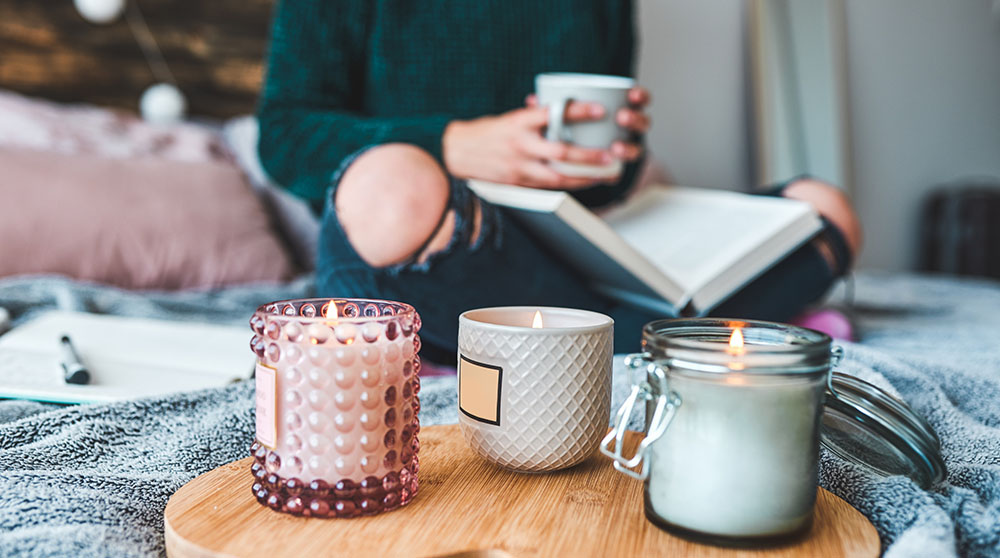How to prevent the top 7 fire hazards in the home.

The National Fire Protection Association reports there were 379,500 residential fires in 2020 alone. That staggering number is up five percent from the number of house fires in 2019. No matter the source, a single flame can quickly become dangerous. A candle can lead to a living room fire. A sputtering pot can lead to a stove fire. A spark from an appliance can turn into a blaze.
But, there are ways to prevent home fires before they start. When you learn the top fire hazards in the home and implement safety measures for the whole family, you can ignite safety instead of flames.
See the top seven fire hazards in the home and how to stay safe:
Kitchen appliances – Electrical appliances like toasters can cause fires if they have a faulty or frayed cord or are placed directly under cabinetry while in use. Pots and pans can boil over or spit grease, leading to stovetop fires. Oven mitts, kitchen towels, and clothing can catch fire if they’re too close to an open flame. Keep safe by staying in the kitchen while cooking and supervising pots, pans, and heating elements at all times.
Candles – Keep candles away from drapes or other items that could catch fire. Avoid burning taper candles that could easily tip over and spread flames – opt for hurricane candle vases or candles in contained jars. Always monitor lit candles and blow them out when leaving a room for an extended period.
Smoking – If you or your guests smoke, always do so outdoors. Use sturdy ashtrays and double-check that the flames are fully extinguished before disposing of butts or ashes.
Bonfires and barbecues – Taking the fun outdoors to the grill or fire pit? Take extra precautions to stop outdoor home fires. Follow our 15 grill safety tips, like grilling on a level surface and cleaning the grates every time. And before starting a bonfire, be sure there aren’t tree limbs or power lines overhead, and follow these seven tips for a safe fire pit.
Heaters – Both space heaters and heating systems can be a fire hazard. Use space heaters sparingly and keep them away from the wall and other objects to stay safe. Have your furnace routinely inspected to ensure it’s in safe working condition. If you have electric heat registers, keep curtains and furnishings at a safe distance to avoid igniting these items.
Overloaded outlets – Sparks can fly and fires can start when too many cords are plugged into an outlet or extension cord. Avoid using extension cords when possible and consider having a specialist out for an annual checkup of your home’s wiring.
Washer/dryers – Do you empty the dryer lint trap after every load? Doing so can help stop laundry room fires. In addition, check the exhaust vent pipe to ensure it’s not blocked, kinked, or restricted.
Now that you know how to spot and stop these fire hazards in the home, give your home even more protection. Talk to one of our local, independent agents about comprehensive homeowners insurance today.
Related Posts
Owning a home is a big investment. That’s why you get insurance to protect it. But does your standard homeowners policy protect you from unexpected costs due to mechanical, electrical, or pressure systems equipment breakdown? Likely not. That’s where homeowners equipment breakdown coverage comes into play for equipment like HVAC systems, refrigerators, and computers. Let’s […]

From the physical structure to the interior assets, your long-term goals to the day-to-day expenses, your business is a significant investment. That’s why protecting your business in all areas is imperative. Crime prevention starts with a plan. We’ve gathered nine crime prevention tips for businesses to help you make that plan and stop theft in […]
« More related posts







